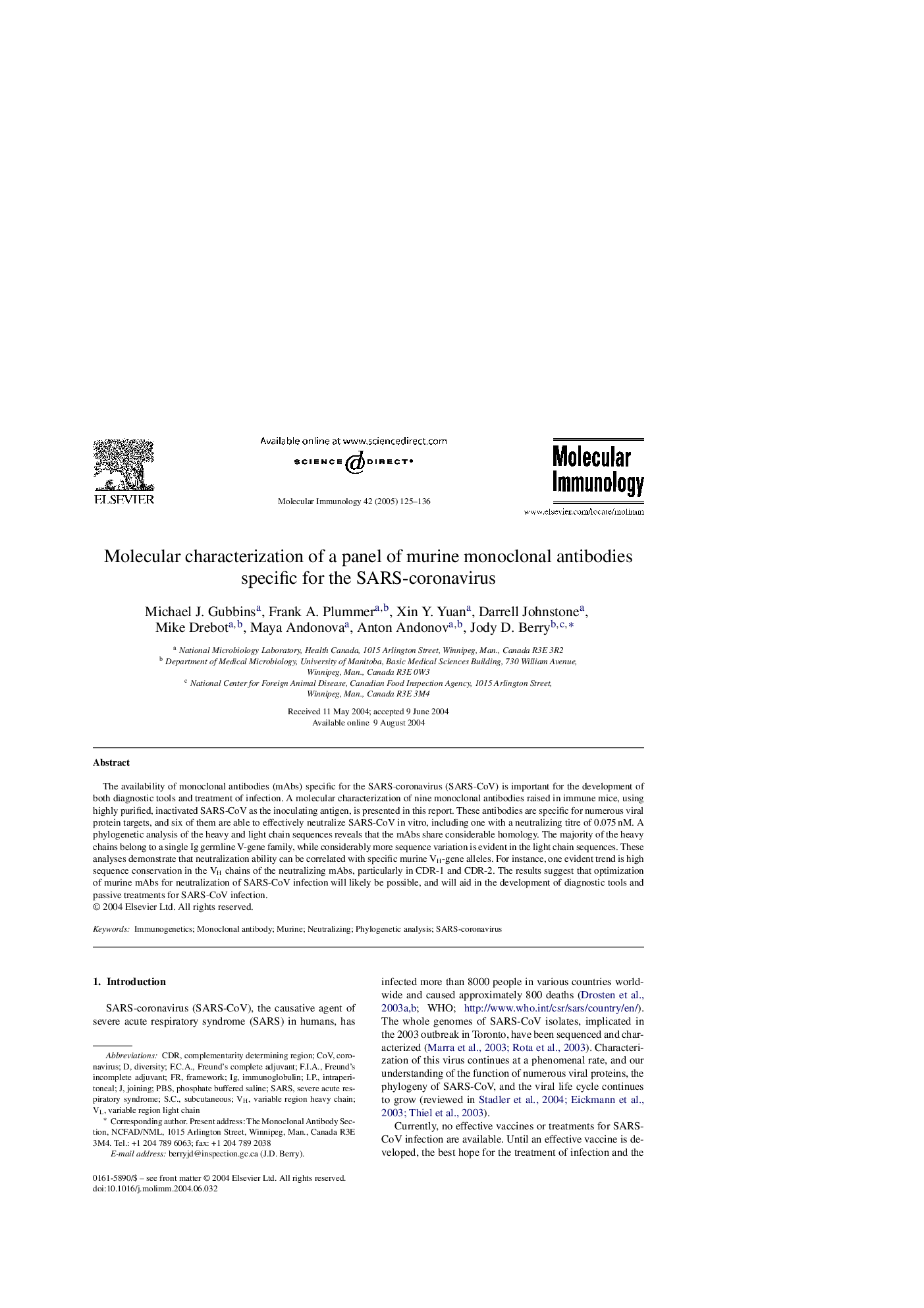| Article ID | Journal | Published Year | Pages | File Type |
|---|---|---|---|---|
| 9142218 | Molecular Immunology | 2005 | 12 Pages |
Abstract
The availability of monoclonal antibodies (mAbs) specific for the SARS-coronavirus (SARS-CoV) is important for the development of both diagnostic tools and treatment of infection. A molecular characterization of nine monoclonal antibodies raised in immune mice, using highly purified, inactivated SARS-CoV as the inoculating antigen, is presented in this report. These antibodies are specific for numerous viral protein targets, and six of them are able to effectively neutralize SARS-CoV in vitro, including one with a neutralizing titre of 0.075Â nM. A phylogenetic analysis of the heavy and light chain sequences reveals that the mAbs share considerable homology. The majority of the heavy chains belong to a single Ig germline V-gene family, while considerably more sequence variation is evident in the light chain sequences. These analyses demonstrate that neutralization ability can be correlated with specific murine VH-gene alleles. For instance, one evident trend is high sequence conservation in the VH chains of the neutralizing mAbs, particularly in CDR-1 and CDR-2. The results suggest that optimization of murine mAbs for neutralization of SARS-CoV infection will likely be possible, and will aid in the development of diagnostic tools and passive treatments for SARS-CoV infection.
Keywords
i.p.variable region heavy chainSARS-coronavirusFreund’s Complete Adjuvants.c.PBSCDRCOVMonoclonal antibodyimmunoglobulin Immunogeneticsphylogenetic analysisDiversityNeutralizingintraperitonealsubcutaneousSARSsevere acute respiratory syndromePhosphate buffered salinecomplementarity determining regionJoiningFrameworkmurineCoronavirus
Related Topics
Life Sciences
Biochemistry, Genetics and Molecular Biology
Molecular Biology
Authors
Michael J. Gubbins, Frank A. Plummer, Xin Y. Yuan, Darrell Johnstone, Mike Drebot, Maya Andonova, Anton Andonov, Jody D. Berry,
